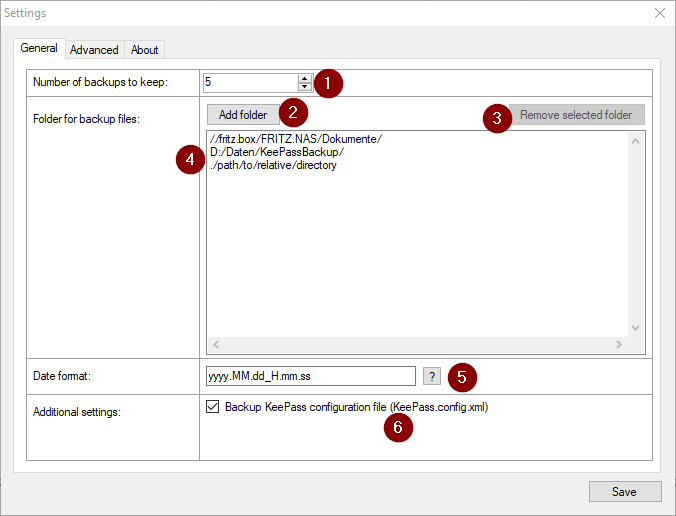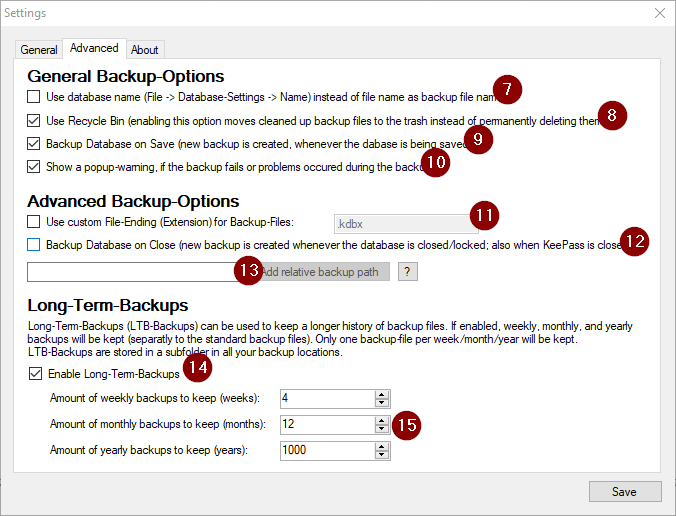-
Notifications
You must be signed in to change notification settings - Fork 8
User Documentation
Initial Setup
General Settings
Advanced Settings
Network Shares / Samba / etc
To enable Backups simply go to Tools -> KPSimpleBackup -> Settings and add at least one folder where the backup files should be stored.
| General Settings | Advanced Settings |
|---|---|
 |
 |
- Amount of backup-files (latest ones of course) to keep per database.
- Add new backup location / path. A backup will be created in every directory listed here.
- Remove the selected backup location.
-
Date/ time format to use for the backup files.
⚠️ Currently backup-files will be deleted depending on their lexicographical order, i.e. you should avoid using a format where the lexicographical order does not match the "time-of-save" order.
Only the following characters are allowed::._+-;(additionally to the "configuration"-characters)
More information about the format in this Microsoft documentation.
- You can either use the file-name of the KeePass-file (Default and recommended) or the name of your database for the backup-file names.
- Deleted backup files (by cleanup) will be moved to your recycle bin by default. If you wish to delete them permanentley directly, disable this option. (
⚠️ Please test, whether cleanup is working properly, before you disable this feature!) - Disable this feature, if you only want to backup your database manually (via the plugin context menu). Otherwise, a backup will be created everytime the database is being saved.
- By default backup-files will be created with the same file-extension (ending) as the original "backed-up" database-file. You can set a custom file ending here, which will be used for backup files.
-
Backup on close: By enabling this feature, the database is always backed up before the KeePass application or the database is being closed.
This can be used if you want to make regulary backups (also when you don't change stuff in the database) for example
The Long Term Backup (LTB) Feature can be used to keep a longer history of your password database. It will save one backup file per week, per month and per year, keeping as many files as you define (at 11.).
LTB's are triggered every time, when the "normal backup" is triggered as well and they will be stored in a subfolder (of your backup location(s)) called <your-file-name>_long-term-backups.
You can select network shares as well as your backup location. You can either type in the URL, e.g. \\myshare\folder\backup in the folder-selection-dialog in the path-bar at the top; or you mount your network share as a drive and select it as a usual local drive in the folder-selection.